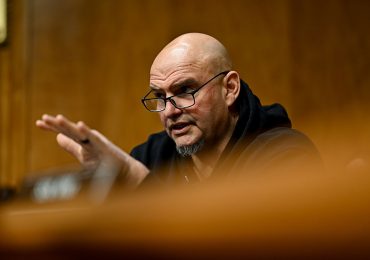In a room divided by ideological tensions and personal conflicts, House Republicans on Tuesday nominated Rep. Tom Emmer of Minnesota to be their next Speaker, making him the third lawmaker to find himself in that position since the ouster of Rep. Kevin McCarthy three weeks ago.
[time-brightcove not-tgx=”true”]
And just like Reps. Steve Scalise and Jim Jordan before him, Emmer, the House Majority Whip, has the support of the majority of the chamber’s Republicans but is well short of the 217 he needs to secure the House gavel.
The high-stakes vote to nominate Emmer followed five rounds of secret balloting that drew nine Republican candidates. Emmer ultimately defeated his closest competitor, Rep. Mike Johnson of Louisiana, with a vote of 117 to 97.
His narrow victory behind closed doors only deepened the evident rift within the Republican Party, leaving uncertain his ability to secure a majority on the House floor. In a separate roll call vote on Tuesday, 26 House Republicans said they would not vote for Emmer on the House floor, suggesting he must win over at least 21 of those lawmakers in order to reach 217 votes.
Despite pitching himself as a unity candidate, Emmer has struggled to overcome criticisms from the far-right who argue he has not been supportive enough of former President Donald Trump, as he was one of the few Speaker candidates who did not object to certifying President Joe Biden’s 2020 election victory in at least one state back on Jan. 6, 2021. Last month, Trump allies told TIME that Trump, who has a commanding lead in virtually all of the Republican primary polls, would have a hard time working with Emmer if he were to win a second term as president next year.
Additionally, some moderates in the conference expressed dissatisfaction with Emmer’s failure to back an effort to temporarily empower the acting speaker, Rep. Patrick T. McHenry of North Carolina, to allow the House to address critical matters while the leadership fight plays out.
A mainstream conservative, Emmer, 62, has been a member of Congress since 2015 and last year was elected as GOP majority whip, the third highest position in House Republican leadership, in a competitive three-way battle. During the 2022 midterms, he led the National Republican Campaign Committee, NRCC, the main arm of the GOP tasked with electing Republicans to the House, when the party picked up fewer seats than expected but still won a narrow House majority.
Emmer recently called Trump a “fantastic ally” and criticized the multiple criminal prosecutions against the former President as an “abuse of power.” But he hasn’t endorsed Trump or any other candidate to run against Joe Biden in 2024.
The House has remained at a standstill since Oct. 3, when a faction of hard-right Republicans, along with Democrats, forced the vote to remove McCarthy from the Speaker’s position. The GOP has since struggled to rally around a successor, all while international conflicts continue to escalate and a government shutdown looms if Congress doesn’t agree on spending legislation by mid-November.
The path forward for Emmer remains uncertain. A floor vote to elect a new Speaker could occur as early as Tuesday afternoon, but the lingering divisions within the party may leave Republicans in the same position they have been for weeks—a few votes short of electing a new Speaker. “We’re going to have a discussion, where he’s asking people to come to the mic and explain, you know, what your position is,” Texas Rep. Randy Weber told reporters about what was planned for the marathon caucus meeting. Asked how long the process will take, he responded: “Until tomorrow morning, maybe, it sounds like. I just want to know if he’s going to have bed rolls, cinnamon rolls and coffee.”
Leave a comment
















